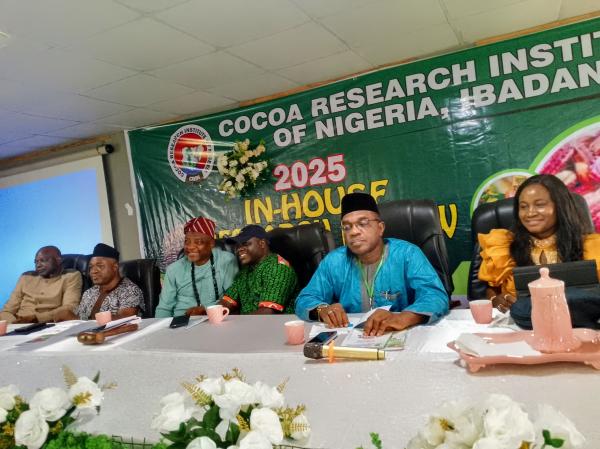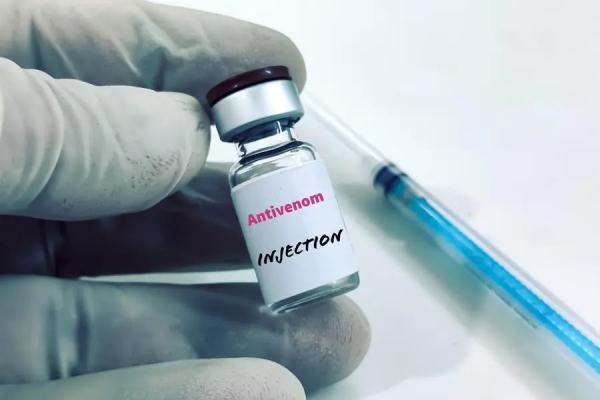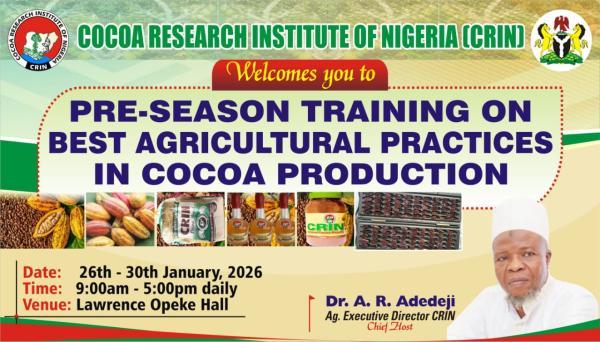
On Wednesday, June 18, 2025, the Lawrence Kayode Opeke Conference Hall hosted Day 2 of the In-House Research Review organized by the Cocoa Research Institute of Nigeria (CRIN). This day was dedicated to an in-depth review of research reports presented by various scholars and researchers, showcasing their innovative proposals aimed at enhancing the productivity and sustainability of Nigeria’s agriculture, particularly focusing on the five mandate crops: Cocoa, Cashew, Coffee, Kola, and Tea.
The attendees, comprised of distinguished guests, researchers, farmers, and stakeholders, were organized into groups according to their respective mandate crops to facilitate focused discussions. The atmosphere was charged with an eagerness to exchange knowledge and insights, as participants shared their experiences and expertise.
In the Kola segment, researchers presented on several vital topics, including “Vegetative Propagation in Germplasm Expansion: The Search for Improved Kola Genotypes in Nigeria,” which highlighted the importance of genetically superior kola trees to boost production. Another presentation, “Economics of Botanical Usage for Kola Nut Storage and Preservation Among Stakeholders in Ogun State, Nigeria,” examined best practices for ensuring the longevity and quality of kola nuts. Additionally, the discussion on “Knowledge Sharing Behavior and Social Media Use Among Kola Farmers in Nigeria” addressed the role of digital tools in facilitating information exchange among farmers.
The Cocoa group presented significant findings such as “Rejuvenation of Existing Cocoa Model Plot at CRIN Headquarters for Optimal Production,” where researchers discussed strategies to revitalize cocoa yields. The presentation titled “Evaluation of Challenges and Opportunities of Cocoa Farmers in the Adoption of Cocoa Varieties in Ondo State, Nigeria” provided insights into the obstacles faced by farmers in adapting to new cocoa varieties, while “Economics of Integrated Pest Management Utilization by Cocoa Farmers in Nigeria” shed light on effective pest control measures that can enhance cocoa yield and farmer profitability.
In the Cashew session, highlights included “Multi-Location Field Trials of Elite Cashew Mother Tree Clones” and “Cashew Mother Tree Scion Garden for New Cultivar Development,” both of which aim to optimize cashew production through advanced breeding techniques.
Finally, the Coffee group focused on practical aspects of coffee production, with presentations like “Improving Processing Practices for Enhanced Coffee Production in Nigeria” and “Economics of Coffee Production, Processing and Marketing for Utilization and Empowerment in Nigeria,” emphasizing the importance of refining processing techniques to boost both quality and economic returns for farmers.
Dr. Famaye and Dr. Ipinmoroti chaired the sessions, guiding the discussions and ensuring that each presentation was followed by vigorous questioning and engagement from the audience. This interaction provided an invaluable opportunity for farmers and stakeholders to comment on the research findings, ask pertinent questions, and share their practical experiences related to the discussed topics.
The sessions not only highlighted innovative research but also reinforced the importance of collaboration between researchers and farmers in addressing the challenges faced in agriculture. Stakeholders expressed gratitude for the insights shared and emphasized the need for ongoing dialogue to drive progress in the agricultural sector.
As the day concluded, the enthusiasm and commitment to improving Nigeria's agricultural outputs were palpable. The event underscored the vital role that research plays in enhancing food security and farmer livelihoods across the nation, paving the way for a more sustainable and prosperous agricultural future in Nigeria.






















